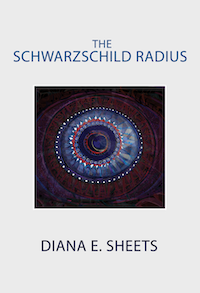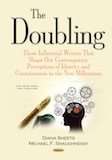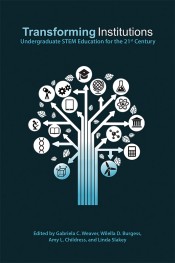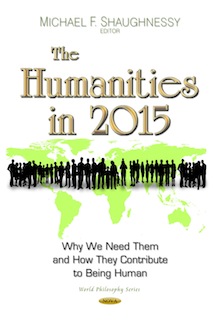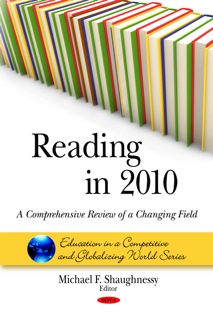Junot Diaz: Not Your Average Homeboy
Copyright © 2008 by Diana E. Sheets
With the publication of “Ysrael” in Story Magazine in the autumn of 1995 and “How to Date A Browngirl, Blackgirl, Whitegirl, or Halfie” in The New Yorker that same year, Junot Díaz blazed into the literary stratosphere. Together these tales and eight others form an interconnected story collection, Drown, published by Riverhead Books in 1996. Drown chronicles the struggle of two brothers, Rafael and Yunior, and their Mami to overcome hardships in the barrios of the Dominican Republic and America’s “mean streets” of suburban New Jersey. Having been abandoned by Ramón, their Papi, they falter. Years later, he returns to take his family to
The stories in Drown are conveyed by means of a Spanglish that is abrasive, fractured, poetic, and compelling.
The initial fights, with Mami throwing our silverware into wild orbits, lasted a week. After a fork pierced him in the cheek, Papi decided to move out, just until things cooled down. He took a small bag of clothes and broke out early in the morning. On his second night away from the house, with the puta asleep at his side, Papi had a dream that the money Mami’s father had promised him was spiraling away in the wind like bright bright birds. The dream blew him out of bed like a gunshot. Are you OK? the puta asked and he shook his head. I think I have to go somewhere, he said. He borrowed a clean mustard-colored guayabera from a friend, put himself in a concho and paid our abuelo a visit. (“Negocios,” Drown, 1997, 163-4)
Two primary influences were Edward Rivera’s Family Installments (1982) and Piri Thomas’s, Down Those Mean Streets (1967). Both embed Spangish into the textual fabric of their accounts and convey the difficulties of Puerto Rican immigrants struggling to forge a new life in
The award of the 2008 Pulitzer Prize for Fiction for Junot Díaz’s long awaited novel, The Brief Wondrous Life of Oscar Wao (Riverhead Books, 2007), has enshrined his literary reputation. Nominally, the story is about Oscar Wao, an overweight nerd, who is bookish and romantic. After a suicide attempt, he becomes the college roommate of Yunior, formerly the principal character of Drown, who now narrates The Brief Wondrous Life of Oscar Wao with Dominican/American swagger. This contemporary historical novel interweaves the stories of both cultures, contrasting the hardships endured during the Trujillo Era (1930-1961), ruled by brutish authoritarian leader Rafael Leonidas Trujillo, with the banality of a coming-of-age tale in America at the end of the twentieth century (1974-1995). It ends melodramatically in the near present with the musings of Yunior who informs us of the murder of Wao after his brief interlude on the island with a Dominican prostitute. This conclusion intersects past and present, foreshadowing the possibility of a future generation that will come to grips with the tragic family history.
The Brief Wondrous Life of Oscar Wao is the story of the Dominican Diaspora set against the brutal dictatorship of Rafael Trujillo. In the annals of post-colonial history, the regime of
The
Dominican history, Bosch suggested has been cursed by “Moira,” a cruel fate impacting the lives of islanders since the Spanish conquest. He argued that Spain’s relative backwardness, its “feudal” character steeped in rigid class divisions, shaped the foundations of the Dominican modern state (Pedro L. San Miguel, The Imagined Island: History, Identity, & Utopia in Hispaniola, Translated by Jane Ramírez, The University of North Carolina Press, 2005, 27-32).
From Bosch’s perspective, the division of Hispaniola into two countries, the importation of African slaves to the territory that would later be known as Haiti, and the social injustices that ensued were caused when “history snatched the Dominican fruit from its tree before the sap of life could ripen it as Nature intended” (30). The island history of racial strife, slavery, and plantation revolts, and the authoritarian propensity toward violence at the expense of democracy was the legacy incurred by colonial domination and the excesses of the Haitian Revolution, which led to an exodus of local ruling elites. The result was an economic paralysis that contributed to a decrease in population. These conditions invoked a Moira of economic and political misfortune that has been the fate of the island ever since. Thus, Bosch examined, and to some degree excused, the brutal
These economic and racial tensions continue. Not surprisingly, a student’s reply on a geography test in 1985 characterized the Dominican Republic as “an island surrounded by water and Haitians on every side” (62), reflecting the implicit anxiety that it would be only a matter of time before the “white” Dominican population would be overrun by the impoverished “black” Haitian mob, thereby annihilating the Dominican Republic. From this perspective, Dominican history can be seen as a nation battling foreign occupation since 1492—initially from Spain and France and, during the 20th century, by the United States—while tentatively laying the foundations for democracy and economic opportunity as it nervously looks eastward toward the Malthusian menace of Haiti.
It is against this historical backdrop that the novel The Brief Wondrous Life of Oscar Wao was conceived. Díaz borrows Bosch’s Moira or cruel fate, which he transcribes as fukύ (1-3).
They say it came first from
No matter what its name or provenance, it is believed that the arrival of Europeans on
Frederic Jameson argued in 1986 that
Thus, fukύ becomes the means by which The Brief Wondrous Life of Oscar Wao transcends the particular to assume the universal characteristics of national destiny (allegory). The misfortune of our protagonist, Oscar, is caused by being fat, a nerd, and a virgin—the very antithesis of machismo. Only at the conclusion of the novel, when he makes love to a Dominican prostitute on the island, does he become a man, thereby realizing his fukύ—death by gunfire. For the Wao family, cruel destiny is manifested again and again. The grandfather, the surgeon Abelard Luis Cabral, suffers his tragic downfall when he tries to protect his beautiful daughter Jackie from being ravished by the Dictator Trujillo. Abelard is tortured by the secret police and reduced to a vegetative state before dying years later. His wife, Socorro, fragile in spirit, proves incapable of battling adversity. She gives birth to a third daughter, the dark-skinned Belicia, Oscar’s future mother. In a state of postpartum depression, Socorro is crushed by an oncoming ammunition truck as she steps into the street. Jackie, although never actually abused by
In an interview conducted by Ilan Stavans in 2003, Díaz was asked “How does a story come to be?” His reply was significant.
I tend to start with silence. And it’s usually a silence around an issue, a silence around a time in my life, a silence about certain kinds of relationships, certain kinds of things boys do. Silence is wrapped around them, whether it’s a societal silence or a more personal individual one. When I detect one of those in myself, that’s when I have the makings of a story. I like to put my hand through forbidden spaces. Once I’ve identified the silence, I lock myself up in a bare room with no music and no light, just sitting down and trying to bang out a story.” (“Driven: Junot Díaz,” Conversations with Ilan Stavans, The University of
Díaz elaborated, noting, “My mother’s experience under a dictatorship made you pretend that what you saw wasn’t real. You couldn’t say to people, “Yo, that’s a death house . . . . Even though you saw it around you, it was silence you opted for.” But after 9/11, he suggested, “people suddenly began to talk. Say well, you know, 9/11 was terrible, but the military government in the
The Brief Wondrous Life of Oscar Wao is a story in the grand allegorical tradition of The Tin Drum by Gϋnter Grass or Midnight’s Children by Salman Rushdie. It is a tale of the Dominican Diaspora presented through the perspective of one family. It has the whiff of the magical realism of Gabriel García Marquez and the
*
However, this not to suggest that Díaz’s stories are without defects. Both Drown and The Wondrous Life of Oscar Wao depict archetypal Latino men who are unfaithful or abandon their lovers or desert their families or are prone to violence and/or sadism. As Lucía M. Suárez has noted, Díaz “serves up what could be viewed as stereotypical representations of Dominican Diaspora violence” in order to satisfy “the expectations of the mainstream
Thus, when Díaz’s interconnected story collection was published in the
Then, there is the issue of gender. The female characters in Drown never depart far from their prescriptive roles. Mothers are portrayed as victims and emotionally scarred (Sandín, 2). Young women are objectified. And if the short-short “Alma,” published recently in The New Yorker, is any indication, Alma with “a long tender horse neck and a big Dominican ass that seems to exist in a fourth dimension”—who abandons her lover when she learns he has been unfaithful—this licentious froth of sexual titillation and machismo will continue (December 24 & 31, 2007, 52-3). Díaz strives mightily to create more fully realized women in The Wondrous Life of Oscar Wao, particularly with his rendering of Wao’s sister, Lola, and his mother, Belicia, although with only limited success.
Díaz’s strategy to deflect criticism about gender and stereotypes is to utilize doppelgangers in his fiction—two characters, one sensitive, the other predictably machismo in his stories (Rafael/Yunior in Drown; Yunior/Wao in The Wondrous Life of Oscar Wao). Nevertheless, the question must rightfully be posed, if both books had been written by any one other than a talented Dominican/American man would the literature be considered racist?
Apart from issues associated with gender and ethnic stereotyping, there is the matter of whether Díaz treats the subject matter of The Wondrous Life of Oscar Wao with authenticity. By applying Bosch’s teleological perspective through the lens of postmodernism/postcolonialism (pomo-poco), the characters are deprived of human agency—the chance to alter destiny by means of their own efforts. Consider also that the narrator never modifies his language or cadence to reflect the contrasting periods—the Era of Trujillo versus that of contemporary
Let us hope that Mr. Díaz possesses the courage to write that truly great work of literature—tackling the assimilation story, or any other he sees fit, with brio and maturity. But to accomplish this feat, he must be prepared to challenge himself and his audience, permitting his fiction to transcend the limitations imposed by writing just another Diaspora tale of hardship and struggle, vulgarity and titillation, set against that prerequisite backdrop of social justice.


